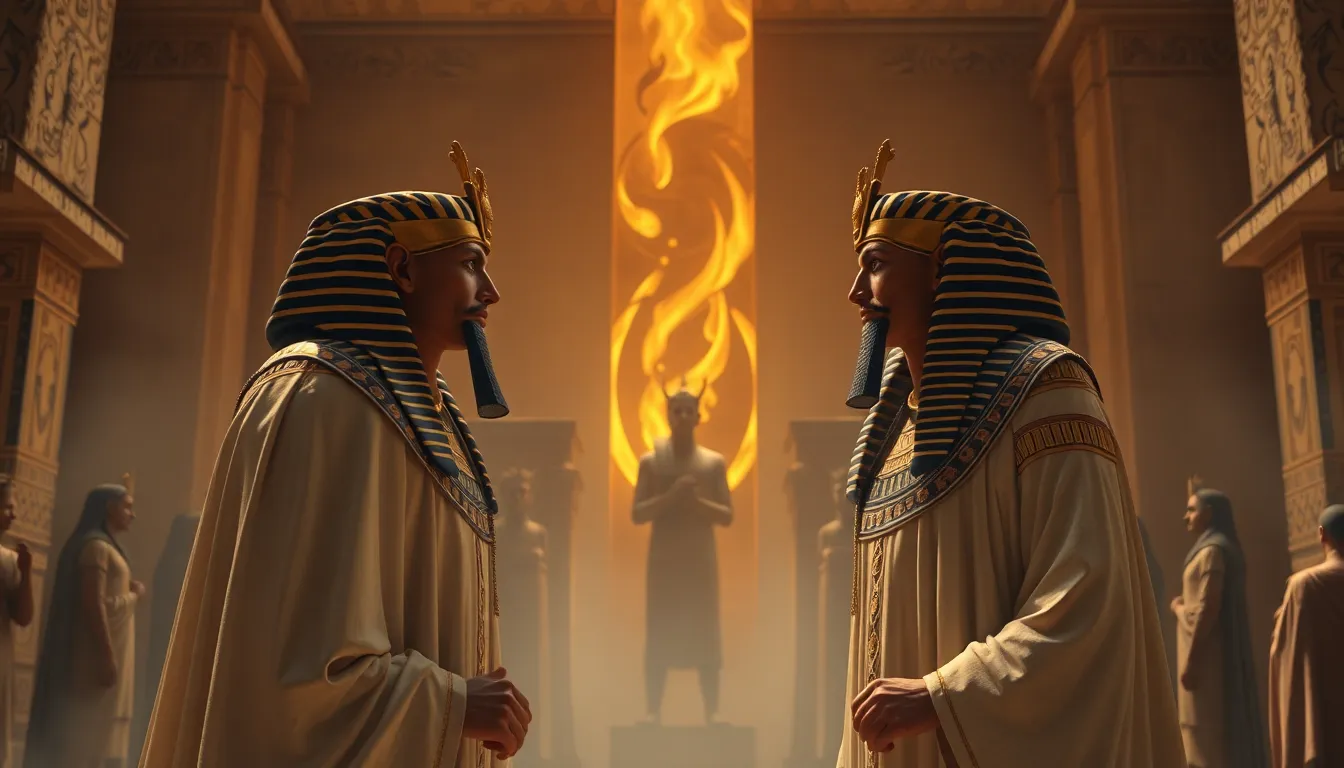The Rituals of Kingship: Coronation Ceremonies in Ancient Egypt
I. Introduction
The ancient civilization of Egypt is renowned for its profound cultural and religious practices, with kingship holding a central position in its societal structure. The pharaoh, as the king of Egypt, was not merely a political leader; he was considered a divine figure, a living god tasked with maintaining Ma’at, the principle of cosmic order and harmony. This article delves into the intricate coronation ceremonies that marked the ascension of a pharaoh, exploring their cultural significance and the deeply rooted traditions that accompanied these pivotal events.
II. The Concept of Kingship in Ancient Egypt
In ancient Egyptian society, kingship was defined by the pharaoh’s dual role as a political leader and a religious figure. The pharaoh was believed to be the intermediary between the gods and the people, embodying divine authority on Earth.
- Definition and Role of the Pharaoh: The pharaoh was responsible for governance, military leadership, and religious duties. His decisions were believed to be divinely inspired, and he played a crucial role in ensuring the prosperity and stability of the kingdom.
- Divine Right to Rule: The pharaoh’s legitimacy was derived from his connection to the gods. He was often associated with Horus, the sky god, and Osiris, the god of the afterlife, reinforcing the belief that his rule was sanctioned by the divine.
III. Historical Context of Coronation Ceremonies
The coronation ceremonies of ancient Egypt evolved significantly over the millennia, influenced by various dynasties and historical events. Each new pharaoh brought unique elements to the rituals, reflecting changes in religious beliefs and political power.
- Evolution of Coronation Practices: Initially, the coronation was a simple event, but as the civilization advanced, it became increasingly elaborate. By the New Kingdom, the rituals had transformed into grand ceremonies involving numerous rites and symbols.
- Major Historical Events: Events such as the unification of Upper and Lower Egypt under Narmer and the subsequent dynastic changes affected how coronation rituals were performed, often incorporating elements that symbolized unity and divine favor.
IV. Key Components of the Coronation Ceremony
The coronation ceremony was rich in symbolism and ritual, serving to legitimize the new ruler and demonstrate his divine right to govern.
- Rituals and Symbols: Key rituals included the ‘Hedjet’ (white crown) and ‘Deshret’ (red crown) of Upper and Lower Egypt, respectively, symbolizing the unification of the two lands. The pharaoh would partake in various rituals, such as the ‘Sed Festival,’ which celebrated his strength and endurance.
- Significance of the Crown and Regalia: The crowns worn by the pharaoh were not simply ornamental; they represented his authority and divine protection. The use of the ankh, scepter, and other regalia during the ceremony emphasized his role as a sustainer of life and order.
V. The Role of Sacred Spaces in Coronation
Coronation ceremonies were typically held in sacred spaces that held spiritual significance, enhancing the divine nature of the event.
- Locations of Coronation Ceremonies: Key sites included temples dedicated to major gods, such as Karnak and Luxor, where the pharaoh could invoke divine blessings. Additionally, the sacred city of Memphis was often a focal point for such events.
- The Importance of the Nile: The Nile River held profound symbolism in Egyptian culture, representing life and fertility. During coronation ceremonies, water from the Nile was often used in rituals to symbolize purification and the pharaoh’s connection to the life-giving forces of the river.
VI. Participants in the Coronation Ceremony
The coronation was not solely the domain of the pharaoh; it involved a wide array of participants, each playing a vital role in the proceedings.
- The Role of Priests and Religious Officials: High priests conducted the rituals, invoking the gods and ensuring that the ceremonies adhered to religious protocols. Their presence underscored the spiritual significance of the event.
- Involvement of Nobility and the General Populace: Nobles and officials were present to witness and validate the coronation, while the general populace often participated in festivities, reinforcing the connection between the ruler and the people.
VII. Symbolism and Meaning of Coronation Rituals
The coronation rituals were steeped in symbolism, reflecting the metaphysical beliefs of the ancient Egyptians and their societal values.
- Metaphysical Significance: The rites performed during the coronation were believed to bestow divine favor upon the new pharaoh, ensuring his success in maintaining Ma’at and protecting the realm.
- Reflection of Societal Values: The grandeur and complexity of the coronation ceremony mirrored the values of ancient Egyptian society, emphasizing order, stability, and the divine nature of kingship.
VIII. Conclusion
In summary, the coronation ceremonies of ancient Egypt were vital in establishing the legitimacy of the pharaoh and reinforcing the societal order. These rituals were not only a celebration of a new ruler but also a reaffirmation of the divine connection between the pharaoh and the gods. The legacy of ancient Egyptian kingship, encapsulated in these elaborate ceremonies, has left a lasting impact on subsequent civilizations, influencing their perceptions of leadership, divinity, and governance.




